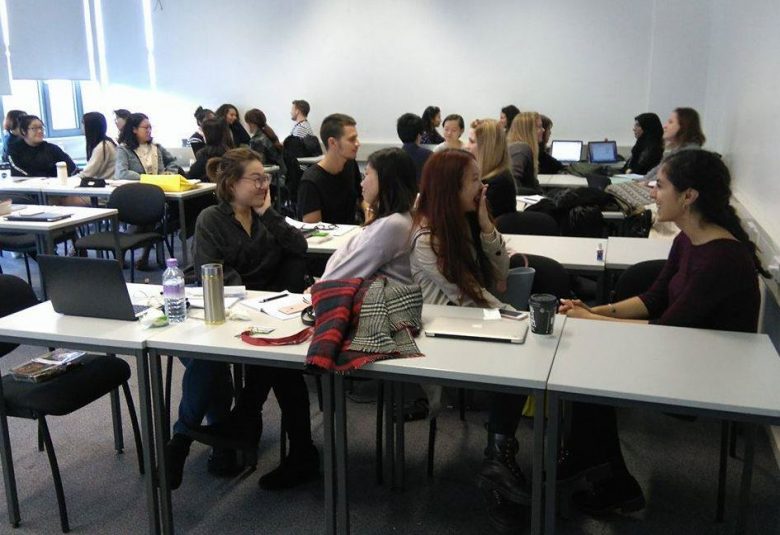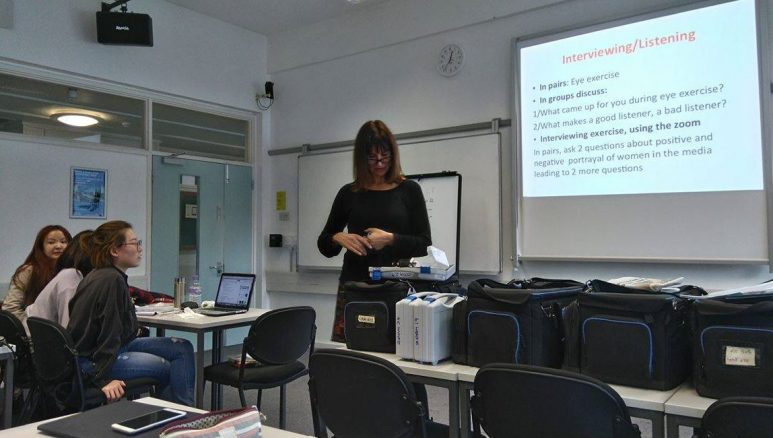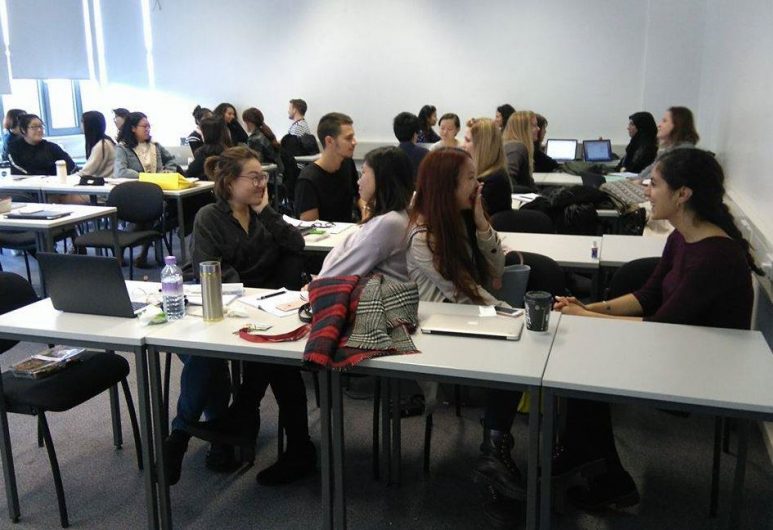Published: 9 November 2016
Country: UK
by Roxane Biedermann

The number of students attending the MA in Diversity and the Media in 2016/17 at the Westminster University has tripled. Twenty four students attend the course, designed and set up in partnership with the Media Diversity Institute (MDI). From year to year, this unique MA course is changing, mostly following new trends in journalism, communication and the media. Also, this year there are new lecturers such as a filmmaker Rani Khanna teaching “Reporting Diversity: Gender, Sexuality, Age, Disability” module.
Professor Roza Tsagarousianou, who is in charge of the course, says there are numerous reasons why students express big interest in diversity in the media and related issues. “They know why they came”, says Tsagarousianou.

Roberto Marchiano from Italy has a bachelor degree in Linguistics and Culture Variation acquired in his home country. He always wanted to do his master studies in London because he believes that is a more challenging environment. “Media courses in London have a deeper focus on the aspect of diversity, especially this one at the Westminster University. This MA is unique, both on theoretical and practical level. I had never done such things as learning how to make a film or how to include every minority group while working in the media industry. This is all very new and challenging, and it is definitely what I was looking for,” says Roberto. He would like to be a journalist reporting on gender and LGBT issues: “I would be glad if I can contribute to an open dialogue about these issues, and show realities that people do not see.”
Kwan Saleephol comes from Thailand. Until the very beginning of the year, she couldn’t make her choice between two different modules: Media and Development and Media and Diversity. She opted for the first one because she thought that it would be easier to get a job afterwards. She then realised that the module was not challenging enough and decided to transfer after only three days. But Kwan is happy that she has chosen to study the MA in Diversity and the Media agreeing that the real advantage of the course is a combination of theory and practice. “We learn how to analyse the media and how to treat difficult issues,” says Kwan.
There are couple of students who already work as professional journalists back in their countries. Both Suzanna from Hungary and Caren from South Africa needed a change in their work environment. They decided to learn more about diversity in order to become better journalists.
“I wanted to see the reality, to live in a multicultural environment”, says Suzanna. Integrity is very important for her as a journalist, and she’s always refused to do any propaganda, which is unfortunately something very common in some media outlets in Hungary. “It is very important that journalist learn how to report about diversity, because diversity issues are the most important issues of today’s world. We need to look at those issues from different angles and to report the news in a responsible and honest way,” says Caren.
According to her, there was no other course in the UK that is dealing with those questions in the way that the MA Diversity and the Media does. She is pleased to learn the theory first, and then to learn how to apply it in storytelling.
Professor Tsagarousianou also highlights this particular advantage of combining theory and practice. The purpose of the MA at the Westminster University is not just to look into the issue of conflict, diversity, freedom of expression or responsible reporting but to train students to be journalists who can contribute to the NGO sector. She is trying to create critical thinkers and professionals at the same time. “Hopefully our students will bring something new and contribute to the social change. In a good way, of course, because social change is happening and it is something good, isn’t it?”

